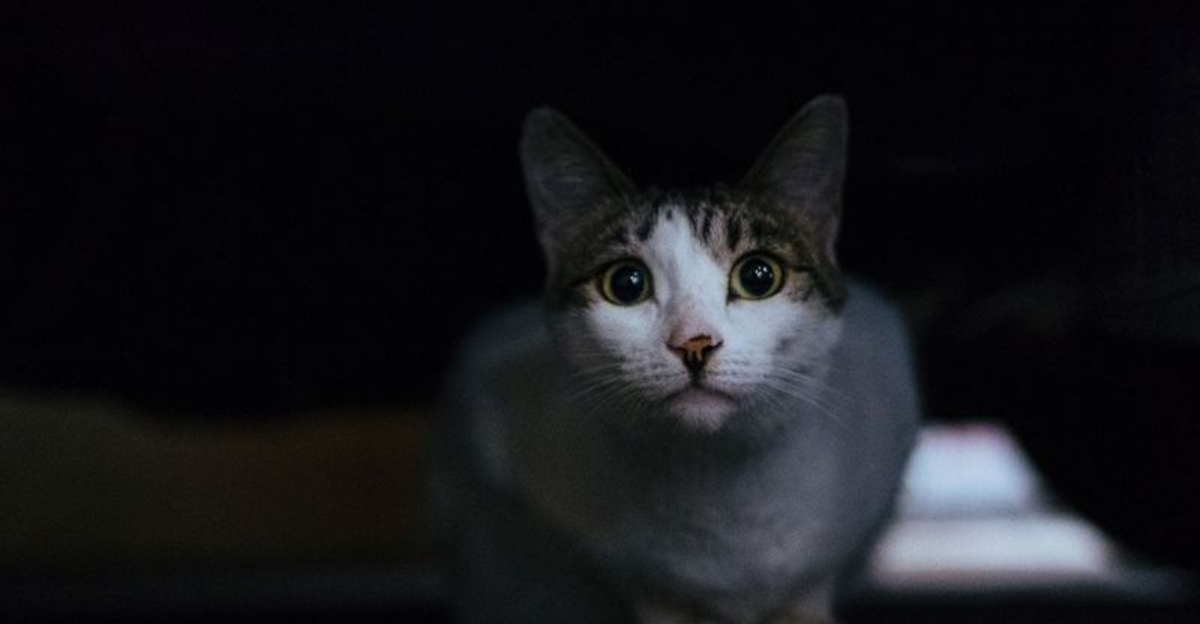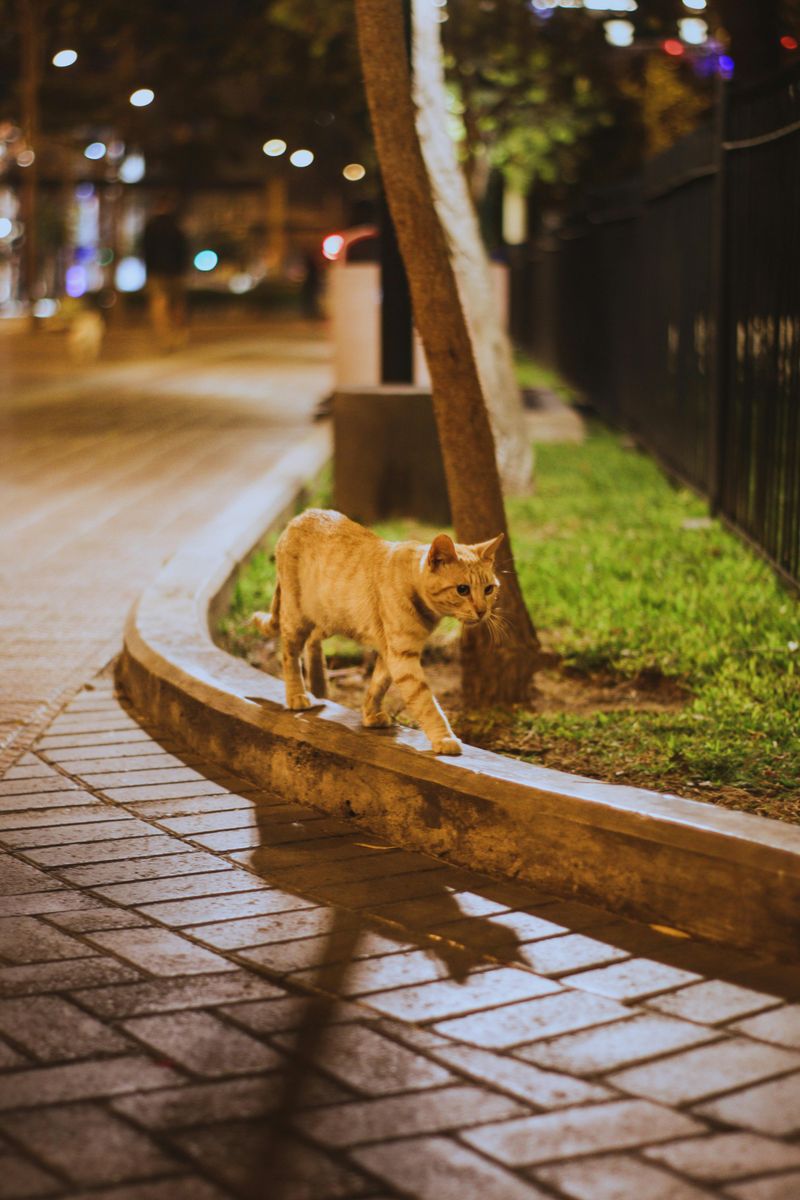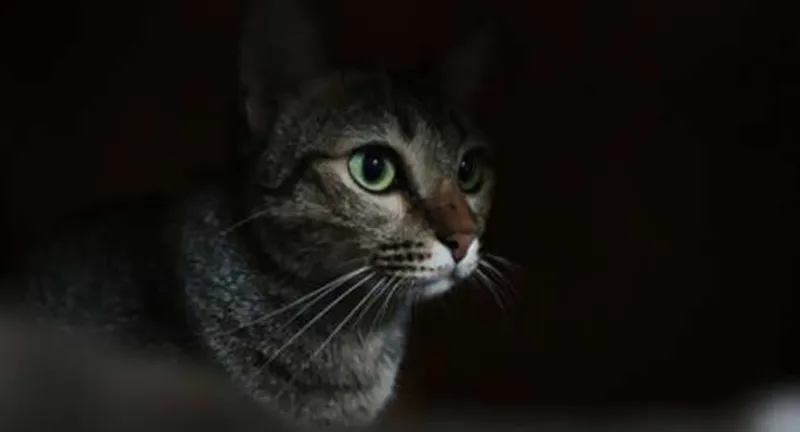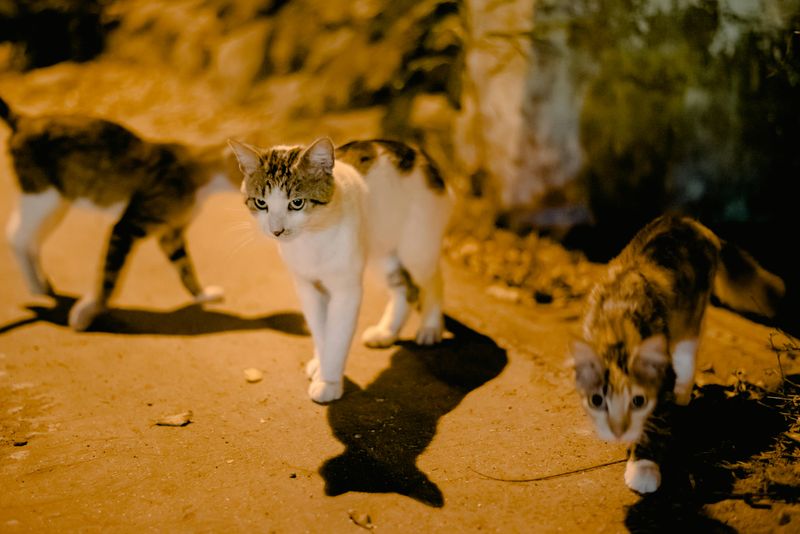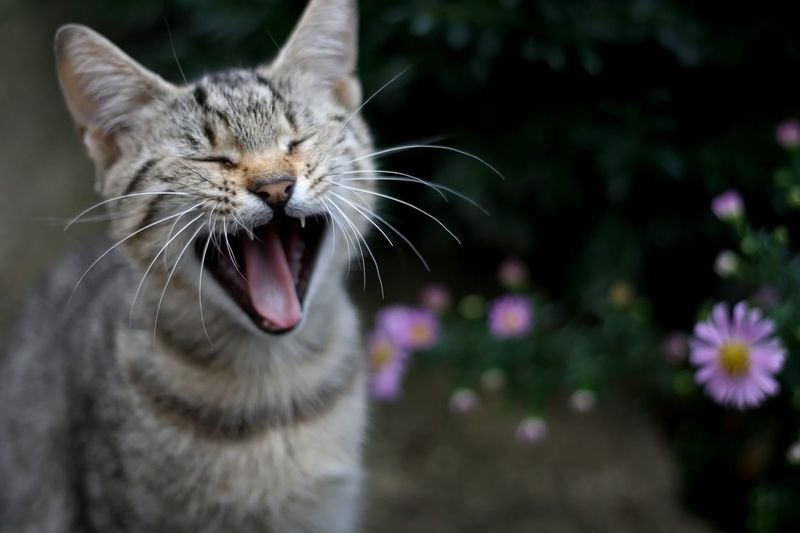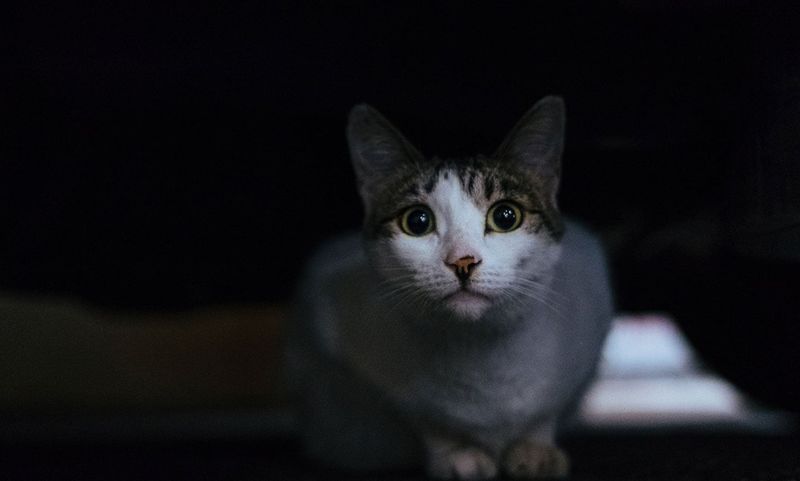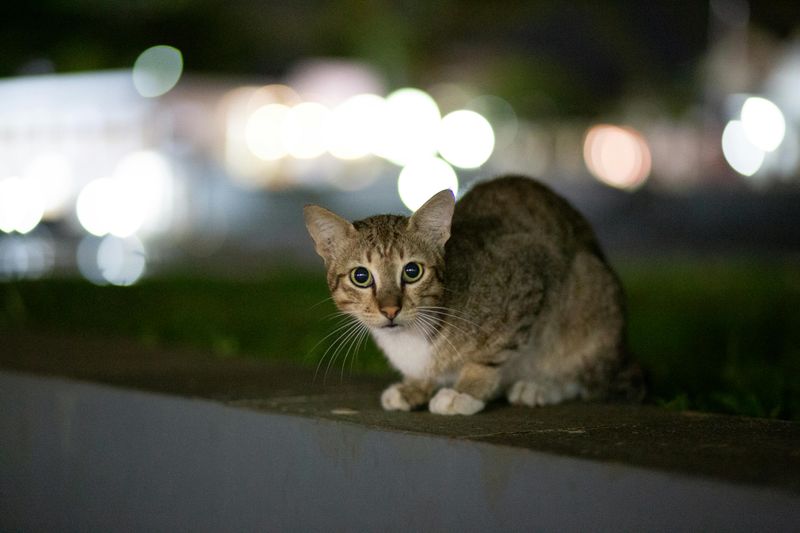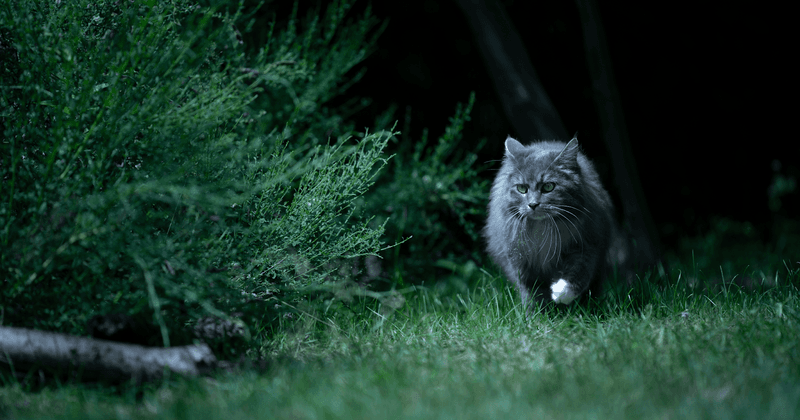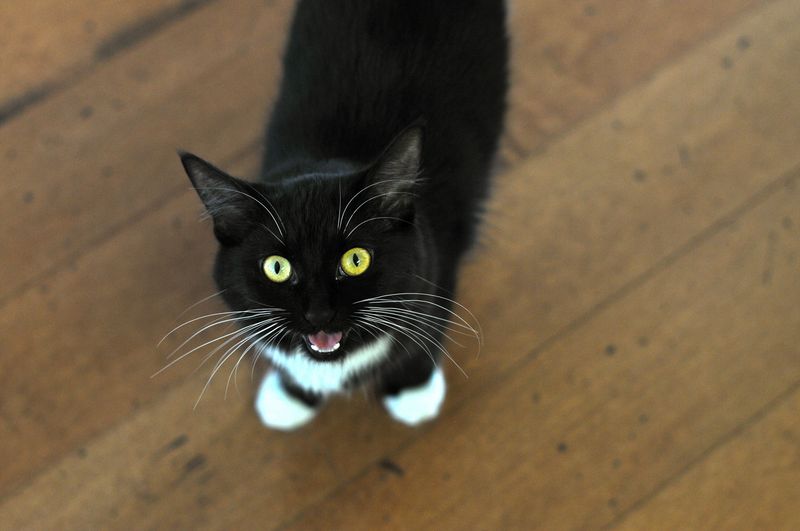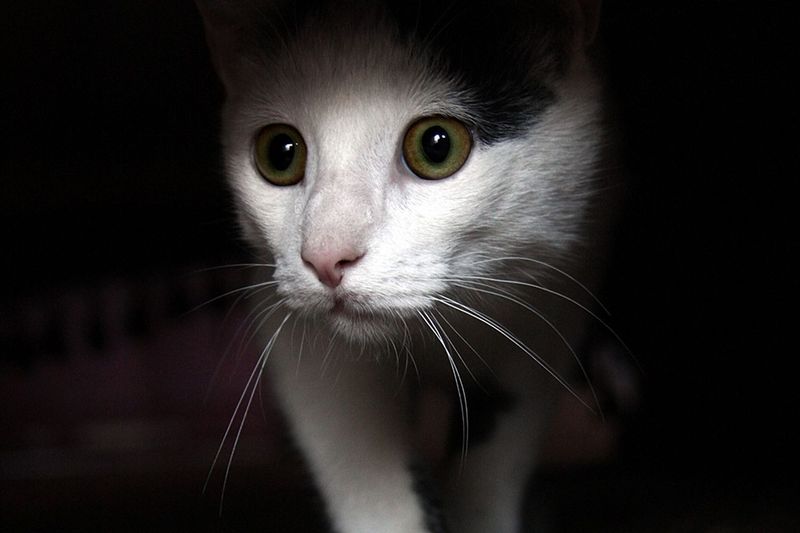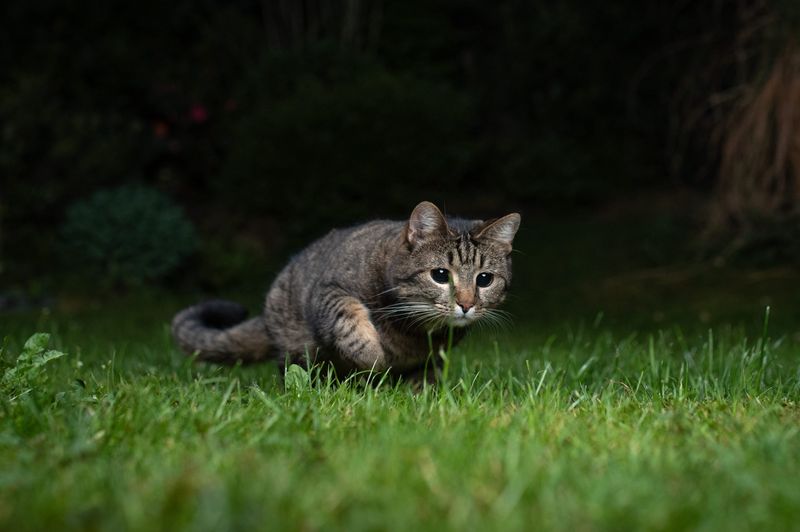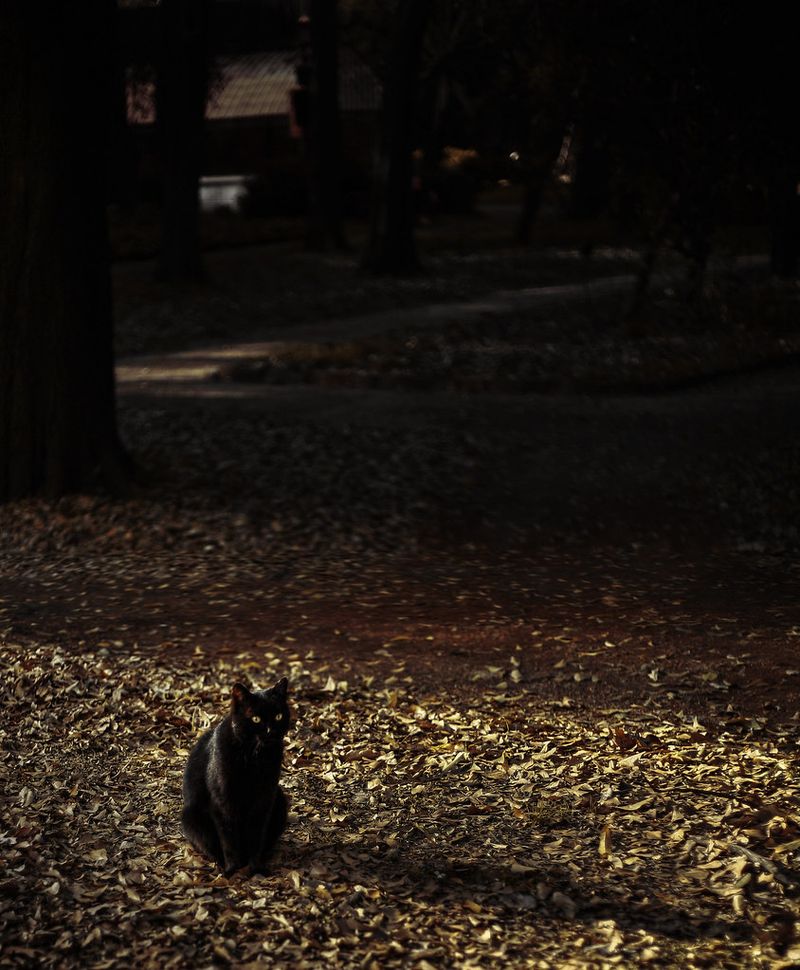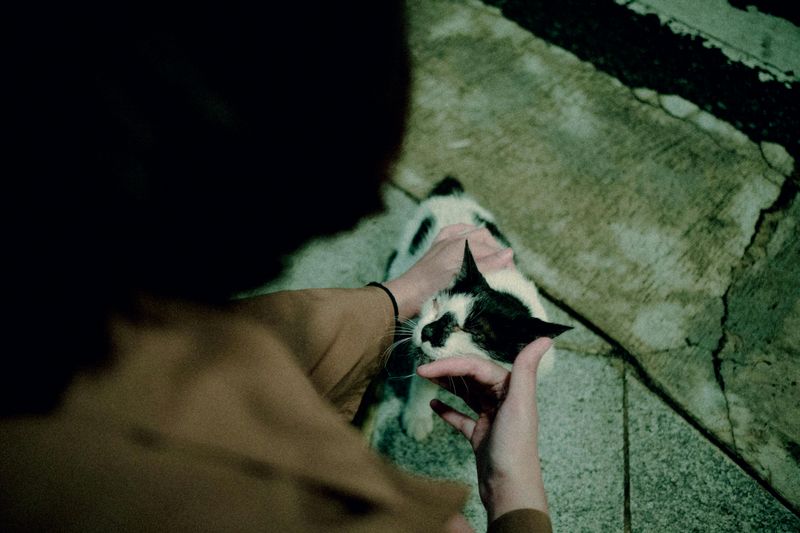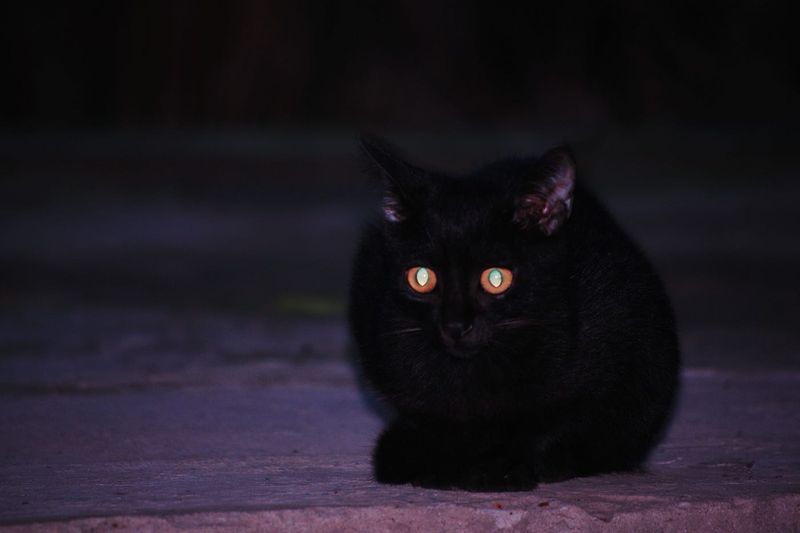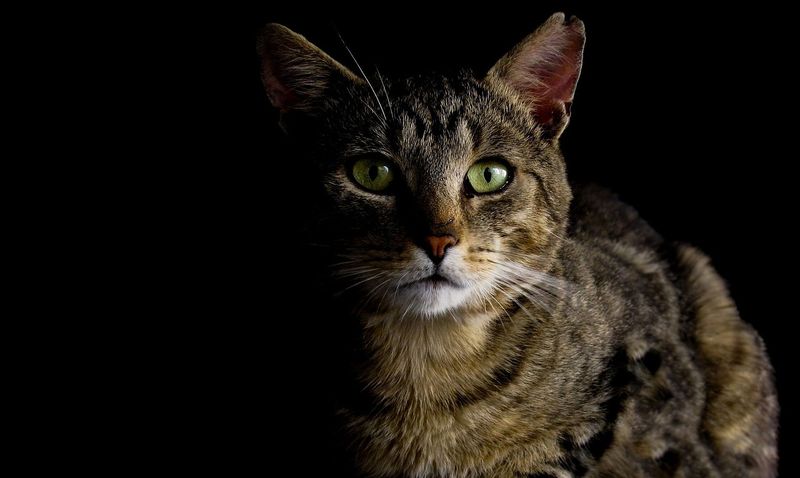📖 Table of Content:
- 1. Moonlit Curiosity
- 2. Territorial Claims
- 3. Nocturnal Socializing
- 4. Mating Calls
- 5. Hunger Pangs
- 6. Avoiding Predators
- 7. Weather Warnings
- 8. Attention Seeking
- 9. Stress and Anxiety
- 10. Health Issues
- 11. Exploring New Territory
- 12. Communicating with Humans
- 13. Sound Echoes
- 14. Scent Marking
- 15. Curiosity About Nightlife
Outdoor cats are fascinating creatures with behaviors that often spark curiosity. Their tendency to meow at night is one of those mysterious habits that many find difficult to understand. This nocturnal vocalization has various causes, and uncovering them can help explain why cats behave the way they do.
Meowing is a form of communication, and for outdoor cats, it can serve many purposes, especially in the quiet of the night. These cats are exposed to different stimuli that may trigger vocalizations during hours when the world is calmer. Understanding the reasons behind their nighttime meowing offers valuable insight into their needs and instincts.
While some meows are simply a way to express emotions, others are influenced by environmental factors or natural instincts. The behavior of outdoor cats is shaped by their surroundings, and nighttime meowing may be an expression of various desires or concerns. Exploring these 15 reasons helps unravel the mystery behind this intriguing aspect of feline behavior.
1. Moonlit Curiosity
Outdoor cats often exhibit a heightened sense of curiosity at night, especially when illuminated by the moon. Their meowing may be a response to the mysterious shadows and movements that the night brings. This natural intrigue can lead them to vocalize more as they explore their surroundings.
Cats are known to be inquisitive creatures, and the night presents an array of sounds and sights that are absent during the day. This curiosity-driven behavior is not only a form of exploration but also a way of staying alert and communicative in their environment.
2. Territorial Claims
At night, outdoor cats may meow to assert their territorial dominance. This vocalization serves as a warning to other cats encroaching on their domain. Such behavior is critical in maintaining their status within the feline hierarchy. As solitary hunters, these cats rely on clear territorial boundaries to ensure access to food and safe resting places.
Nighttime meowing can signal to rivals that this territory is claimed and defended. Understanding this aspect of feline behavior can help cat owners appreciate the complex social interactions that occur within the outdoor cat community.
3. Nocturnal Socializing
Meowing at night is often a sign of outdoor cats seeking social interaction with others. This vocalization can signal either an invitation to play or a territorial claim, depending on the situation. Cats use meowing to foster connections and communicate their status within their social groups.
While some meows are welcoming, others might be assertive, setting the tone for interactions. This social meowing usually occurs in areas where cats congregate, such as near food sources or sheltered spots. For cat owners, understanding these social dynamics can provide insights into their outdoor lifestyles.
4. Mating Calls
During mating season, meowing at night becomes more pronounced among outdoor cats. These vocalizations are often mating calls, signifying readiness to mate or attracting potential partners. Male cats, in particular, may meow loudly as a display of their presence and virility. Female cats respond to these calls, resulting in a chorus of sounds that fill the night air.
The intensity and frequency of these mating calls can vary, but they are a natural part of the reproductive cycle. Owners of outdoor cats may notice this behavior seasonally and understand it as a part of their instinctive reproductive conduct.
5. Hunger Pangs
Hunger can drive outdoor cats to meow persistently at night. When food sources are scarce, these cats vocalize to signal their need for sustenance. This behavior is especially common in areas where hunting opportunities are limited. By meowing, they may also draw the attention of humans who provide food.
Understanding the link between hunger and nighttime vocalizations can help cat owners address their pet’s dietary needs. Providing regular meals or ensuring access to food can mitigate this behavior, ensuring that outdoor cats remain well-nourished and less vocal during the night.
6. Avoiding Predators
Nighttime meowing in outdoor cats may be a survival tactic to stay safe from predators. These vocalizations help cats communicate potential dangers, keeping their social group informed and alert. The meows’ distinct tones help signal the level of threat, providing valuable information in an otherwise quiet environment.
For solitary cats, meowing can be a way to reassure themselves when they feel vulnerable. Understanding this behavior can shed light on the instinctual strategies cats use to survive and stay safe in the wild, especially at night when predators are more active.
7. Weather Warnings
Cats possess acute senses that allow them to detect changes in the weather. At night, they might meow in response to approaching storms or drastic temperature changes. This vocalization can be a sign of distress or a way to alert others of the impending weather conditions. For many cats, changes in barometric pressure or the sound of distant thunder are enough to trigger a vocal response.
This behavior, rooted in their survival instincts, helps them prepare for adverse weather. Understanding this can help cat owners interpret the reasons behind their pet’s increased vocal activity during certain weather conditions.
8. Attention Seeking
Driven by a need for connection, outdoor cats may meow at night to draw attention from humans or other animals. This behavior tends to occur when they feel emotionally neglected or mentally under-stimulated. Through meowing, they express their longing for companionship or affection.
Owners can address this by spending more time with their cats or providing toys and activities to keep them entertained. Recognizing attention-seeking meowing is key to ensuring that outdoor cats feel loved and cared for.
9. Stress and Anxiety
Disruptions in their surroundings often prompt outdoor cats to meow at night. Whether it’s a change in routine or an unfamiliar noise, these changes can unsettle them. Their meows become a way of expressing discomfort and trying to regain a sense of stability.
Loud noises, unfamiliar smells, or the presence of new animals can contribute to their anxiety. Understanding the triggers of stress-related meowing is essential for providing a calming environment. Owners can help by creating safe spaces or minimizing disruptions to their routine. Addressing these factors can significantly reduce nighttime meowing, ensuring that cats remain calm and content in their outdoor habitats.
10. Health Issues
Health-related discomfort can drive outdoor cats to meow at night, particularly if they’re dealing with conditions like arthritis or dental pain. These vocalizations are their way of expressing distress and seeking comfort. Keeping an eye out for other symptoms, such as a shift in behavior or grooming, can help pinpoint the cause.
For cat owners, recognizing these symptoms is crucial in providing timely veterinary care. Addressing health issues not only alleviates discomfort but also reduces the incidence of nighttime meowing, contributing to the overall well-being of the cat.
11. Exploring New Territory
When outdoor cats venture into unfamiliar areas, they may meow as part of their exploration process. This vocal behavior helps them communicate with other cats and assert their presence in new territories. Meowing can also be a way to navigate and map out their surroundings, ensuring they don’t get lost.
The sound acts as a beacon, guiding them back to familiar areas if needed. For cat owners, understanding this exploratory behavior can provide insights into their pet’s adventurous nature. Encouraging safe exploration can enrich a cat’s experiences and contribute to their overall happiness.
12. Communicating with Humans
In the quiet of the night, outdoor cats meow to express their needs or simply make their presence known. From signaling hunger to offering a warm greeting, their meows serve many purposes. Cats know exactly how to use their voices to pull humans into their world.
By understanding their unique vocal patterns, owners can respond appropriately to their cat’s needs. Whether it’s a request for food, a desire to come indoors, or simply seeking companionship, recognizing these cues can enhance the human-cat bond. Effective communication between cats and humans leads to a more harmonious coexistence, where both parties understand each other’s needs.
13. Sound Echoes
Cats are fascinated by the acoustic properties of their environment, and outdoor cats may meow at night to enjoy the echoes their voices create. This behavior is not only a form of self-entertainment but can also serve as a territorial signal.
The echoing sound can travel further, making their presence known over a larger area. For cats, the ability to project their voice and receive feedback in the form of echoes can be intriguing. Understanding this playful aspect of feline behavior can help owners appreciate the simple joys that cats find in their nighttime activities.
14. Scent Marking
Meowing at night can be a part of outdoor cats’ scent-marking rituals. Although they mostly rely on pheromones, their vocalizations reinforce the territorial claims they are making. The meows act as an additional warning to other animals, letting them know that the area is already occupied.
By understanding the combination of scent and sound, cat owners can gain insights into how their pets communicate and establish their domains. This awareness can foster a deeper connection between cats and their human companions.
15. Curiosity About Nightlife
The nocturnal world is full of intriguing sights and sounds, and outdoor cats may meow at night out of sheer curiosity. The presence of nocturnal animals, such as owls or bats, can captivate their attention and prompt vocalizations. This behavior is driven by an innate desire to explore and understand their environment.
Cats, being naturally curious creatures, revel in the mysteries that the night holds. Encouraging this curiosity by providing safe outdoor experiences can enrich a cat’s life. Owners who recognize and support their cat’s interest in nightlife contribute to their overall well-being and happiness.
